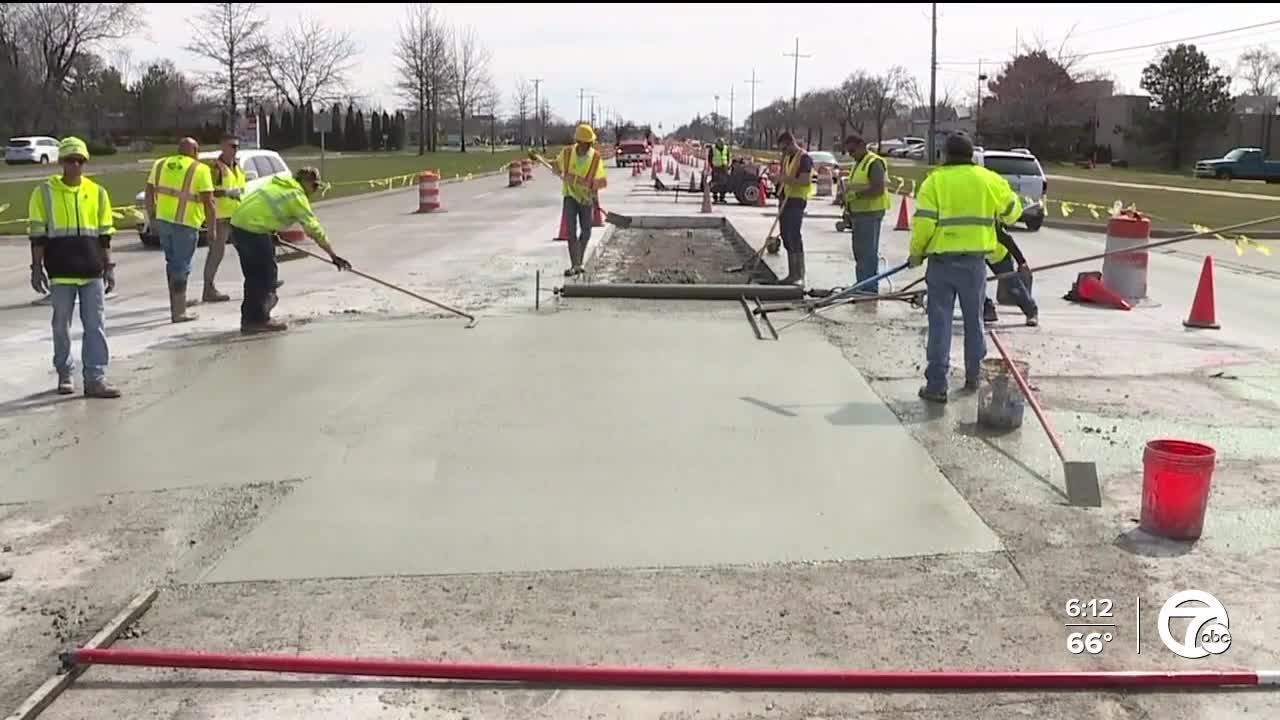(WXYZ) — From Oakland to Wayne and Macomb counties, road funding is a hot-button issue that's bringing many stakeholders together to talk solutions.
See the full story in the video below
In some townships, we're even hearing about officials considering a groundbreaking step to become a city instead.
At the border of Bloomfield Township and the City of Birmingham, there are vast differences when it comes to road funding. In the township, funding is controlled by the Road Commission for Oakland County, but only feet away, the city is calling the shots
It results in money from the state's gas tax not going directly to them. Instead, long-standing funding laws give money to cities from the fuel tax, but leave counties with the responsibility of maintaining township roads.
Special assessments or homeowners' associations are left to raise extra funds for repairs, and there are currently no legislative proposals to change how money flows.
“We have a really bad road in our neighborhood that leads to a school. The RCOC just comes and patches it every couple of months, but it’s awful," Ashley Oshinsky, a local driver, told me.

“What are your thoughts on living in a township, in that the county manages that?" I asked.
"It gives the citizens less control of what we want fixed," she said.
During our first Let's Talk event in Waterford Township, we heard more about a special assessment that would cost taxpayers more in hopes of fixing roads.
Across town in Macomb County, Clinton Township Trustee Shannon King explained what happens if townships become cities.
“When you turn a township into a city, it gives you the opportunity to have control over the funding," King said.

King has been lobbying for Clinton Township, which has a population of more than 100,000, to rewrite its charter as a city to better address the roads.
“If we had more control over road funding, it would allow us to really prioritize the roads that for a long time have gone by the wayside, and we really want to be able to see that change for our residents," King said.
He adds that more hybrids and electric cars are also cutting into the gas tax, even for cities that get the money. These concepts are also resonating with Craig Bryson, a spokesperson for the Road Commission for Oakland County.
“We are at the point where if we don’t get more money soon, roads are going to start deteriorating and that’s true across the board," Bryson said.

In her campaign, Gov. Gretchen Whitmer focused deeply on fixing roads and her office maintains much progress has been made.
“We do often times require them to contribute to the cost of the repair, but if they were a city, they could own the roads and directly pay their own millages," Bryson said.
In Brownstown Township, Karen Terlecky is wondering when the wheels of government will finally solve the issue. She said her neighborhood association is also stifled by funding disparities as construction detours increase traffic around her.
“We have to maintain those streets. We’re not able to get any money from the township to offset what county or other residents are utilizing our roadways for," Terlecky said.

State Sen. Jim Runestad said he's cautiously optimistic and points to the next budget for solutions.
“With the governor, we are actually finding a lot of common ground. She said you have to have a road funding portion. That wasn’t in the Democrats' plan, it is in the Republican plan. She seems much more inclined toward what we’re proposing to do," Runestad said.

For Oshinsky, it comes down to how best to pave the way for a better future.
“If I lived in a city where I can go to meetings and say I want my road fixed, like a Royal Oak, I could say something," she said. "But there’s more hoops to jump through when it’s not a larger city level.”




